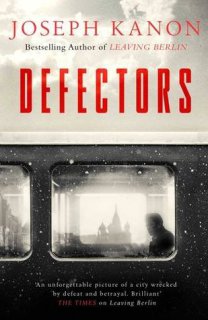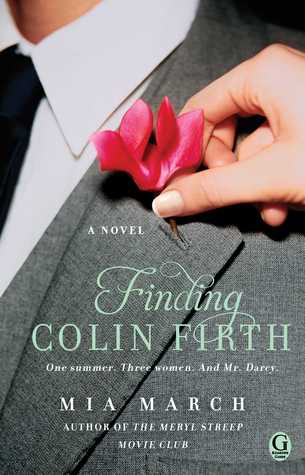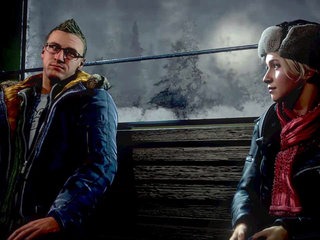Beginning in earnest, and Opening Gala: Breathe.
A lot can change in a year. Various countries across the world can elect incompetent hateful boobs desperately trying to drag societal progress back into a pit out of spite, like when you incorrectly think the Horror movie villain has definitely died only for them to spring back up more deranged and determined than ever. Skills and drive that once came so naturally can dry up completely, causing one to question their own goals and purpose in life. New film releases can stop largely being a pile of interchangeable and instantly-forgettable slop, and instead put in a really strong year that doesn’t make going to a Film Festival feel like an oasis in the middle of an arid desert occasionally interrupted by the unwelcome appearance of Gerard Butler’s permanently-constipated face.
For me, the big change has been that I’ve switched outlets for the 2017 London Film Festival from The Hullfire – which itself was switched out halfway through last year’s ceremony, when the review process took too damn long, to Failed Critics – to Failed Critics and Set the Tape; the latter of which being a site I actually did not know was happening when I put my application form in, hence only the “Failed Critics” name plate on this year’s badge. Ordinarily, I’d take my continued shambles in the face of professionalism right to heart and have another anxiety attack over it, but that leads into the other big change for 2017’s Festival. Last year, I came under the pretence of it furthering my career as a writer and Film Critic, something I was trying so hard to will to life that I made certain to put “Film Critic” down as my position on the badge, like a narcissist. This year, I have no such pretensions, and am instead treating it as what I eventually found last year’s trip to be: a holiday.
Going to a Film Festival is honestly like a holiday, in a way. For (in this case) almost two weeks, you basically hermetically seal yourself in this bubble of film, cut off from the outside world. You wake up really early in the morning, commute to Piccadilly Circus and/or Leicester Square, watch anywhere from 1 to 3 films in the span of about 7 or 8 hours, grab some food, maybe squeeze in another film at a public screening if there’s time, before commuting back home, staying up to write up your experiences – or, if you’re some kind of clever-clogs with the time to spare, trying to squeeze in said writing between films – then going to bed to get up and do it all over again the following morning. And that’s all you think about. Political party conferences? Global catastrophes? Family mundanity? All rescind into the background of your little bubble, and, rather than any of it being a massive stress-inducer, one can find a sort of zen-like calm to it if it sits right with them.
 That’s how I found it last year, eventually, and that’s how I’m trying to treat this year’s, even with the BFI making a bunch of needless changes to press privileges and the like that make certain aspects more cumbersome than previously. Don’t take this to mean that I’m not still being professional – I’m not showing up to screenings tee-totalled, or shirtless, or taking my shoes off in a crowded screen and exposing everyone to my stinky socks like some kind of monster – just that I’m more relaxed about the next fortnight than before. And, in this analogy, that makes my daily dispatches the photo slideshow that everyone’s parents force them to sit through when they return home, with the people presenting beaming with joy over their experiences and those being subjected to it wanting to stab themselves in the eyes and ears with a nail file… but, err, hopefully these are more enjoyable for you to read than that.
That’s how I found it last year, eventually, and that’s how I’m trying to treat this year’s, even with the BFI making a bunch of needless changes to press privileges and the like that make certain aspects more cumbersome than previously. Don’t take this to mean that I’m not still being professional – I’m not showing up to screenings tee-totalled, or shirtless, or taking my shoes off in a crowded screen and exposing everyone to my stinky socks like some kind of monster – just that I’m more relaxed about the next fortnight than before. And, in this analogy, that makes my daily dispatches the photo slideshow that everyone’s parents force them to sit through when they return home, with the people presenting beaming with joy over their experiences and those being subjected to it wanting to stab themselves in the eyes and ears with a nail file… but, err, hopefully these are more enjoyable for you to read than that.
Now, the Festival doesn’t fully get underway until tomorrow (at time of writing), but that didn’t mean that there wasn’t a line of excited Press & Industry folks queuing up round the block at the Odeon Leicester Square at 10am on a windy Wednesday morning for the Festival’s opening film. In fact, there may have even been more than there was last year, when Amma Assante’s thoroughly-eh A United Kingdom raised the curtain on proceedings. This year, the Festival’s organisers went one better and got Andy Serkis himself to grace us with his presence and introduce his directorial debut, Breathe (C). Before the film started, he talked with glee about how he and producer Jonathan Cavendish founded their production company The Imaginarium in order to “find the future of storytelling.” To tell stories in ways that might become accepted 10/20 years from now, before admitting that Breathe is decidedly off-brand for their planned mission statement.
It’s a good thing that Serkis decided to pre-empt that criticism, since Breathe is so old-school British that you could dip the film in batter and use it as the Fish in Seaside Fish & Chips. This is the kind of warm, old-fashioned, period drama aesthetic that Joseph Kahn raided for his video to Taylor Swift’s “Wildest Dreams.” The first title card doesn’t merely go for “Based on a True Story,” oh, no! It instead announces that “What follows is true…” ellipses and everything. Our first appearance of protagonist Robin Cavendish (Andrew Garfield) is of him in overalls and a flatcap driving one of those late-40s roof-less rust-boxes that I played with toy versions of as a child. Everybody deliberately speaks in the most upper-class “toodle pip, HER Majesty, what what” tone with absolutely zero trace of irony. The goddamn title of the film handwrites itself onto the screen, even La La Land resisted doing that!
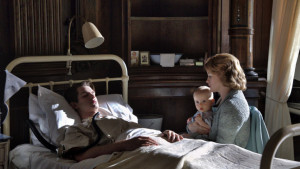 Serkis – who, it must be noted, has been a Second Unit Director on Peter Jackson’s Hobbit trilogy, and a Dramatic Director on the videogame Heavenly Sword, so it’s not like he’s new to directing – displays a fine eye for style, if nothing else. He acquits himself well functionally, and he’s trying so very hard to elevate proceedings through aesthetic design and a warm feel, and he’s good enough at it that Breathe always feels like a throwback to one of those old weepies rather than a mid-level BBC drama that’s had a needlessly exorbitant budget blown on it. I’m interested to see what he’s able to do in the future, because here he has been stranded with a screenplay that is as close as one can possibly get to a Madlibs template about Oscar Bait.
Serkis – who, it must be noted, has been a Second Unit Director on Peter Jackson’s Hobbit trilogy, and a Dramatic Director on the videogame Heavenly Sword, so it’s not like he’s new to directing – displays a fine eye for style, if nothing else. He acquits himself well functionally, and he’s trying so very hard to elevate proceedings through aesthetic design and a warm feel, and he’s good enough at it that Breathe always feels like a throwback to one of those old weepies rather than a mid-level BBC drama that’s had a needlessly exorbitant budget blown on it. I’m interested to see what he’s able to do in the future, because here he has been stranded with a screenplay that is as close as one can possibly get to a Madlibs template about Oscar Bait.
Breathe at least has a leg up on Weinstein dreck like The Imitation Game or The Theory of Everything by virtue of the fact that there is a tangible air of good intentions going into the making of it. Jonathan Cavendish, the film’s producer, is the son of Robin, the protagonist, and the film is about Robin’s contracting of Polio and how he and his wife Diana (Claire Foy) spent the next 20-odd years pushing forward innovations in caring for the disabled as a result of Robin’s desire to see his son grow up. Undoubtedly, the film is well-intentioned, it effectively being a son’s way of honouring his father, and that’s what makes watching the film pleasant instead of contemptuous. And yet, despite that, the film that’s been birthed from those intentions and that deep personal place is somehow completely devoid of any personality other than its aesthetics.
Part of this is down to the fact that the film montages through the entirety of Robin and Diana’s courtship in the opening 5 or so minutes, opting instead to get us to the polio as expediently as possible. It’s the exact same trap that A United Kingdom fell into last year, because doing so robs us of getting to know the characters at the centre of the story and instead puts the onus and focus on the adversity they have to overcome, and that ultimately just robs the story of any potential heart. Contrast with The Big Sick – another deeply-personal based-on-a-true-story biopic involving a medical incident that severely affects its central couple – where that film spends upwards of 40 minutes before the incident hits, allowing us to watch Kumail and Emily meet and fall in love, seeing their unguarded quirks and personalities so that they feel like real people instead of blank beings that adversity happens to.
 That then, you would think, puts the emphasis on the depiction of polio and the film’s attempts to raise awareness of the disease and demonstrate the progress made in the years since Robin first contracted it. Reflective of its super-British values, Breathe largely opts to depict Robin’s struggles and advances with the disease in a light matter-of-fact manner, where characters will joke about many of its aspects, and complications are almost immediately overcome after first being brought up, as Robin and inventor Teddy Hall (Hugh Bonneville) figure out solutions on a ramshackle homemade budget. In a way, it’s more refreshing than another misery-wallow, but it leads to the few sequences where we’re supposed to take Robin’s limits seriously to be unintentionally comedic rather than tense, and the film eventually barrels towards a bog-standard weepy finale anyway that needlessly drags the film up to the verge of two hours.
That then, you would think, puts the emphasis on the depiction of polio and the film’s attempts to raise awareness of the disease and demonstrate the progress made in the years since Robin first contracted it. Reflective of its super-British values, Breathe largely opts to depict Robin’s struggles and advances with the disease in a light matter-of-fact manner, where characters will joke about many of its aspects, and complications are almost immediately overcome after first being brought up, as Robin and inventor Teddy Hall (Hugh Bonneville) figure out solutions on a ramshackle homemade budget. In a way, it’s more refreshing than another misery-wallow, but it leads to the few sequences where we’re supposed to take Robin’s limits seriously to be unintentionally comedic rather than tense, and the film eventually barrels towards a bog-standard weepy finale anyway that needlessly drags the film up to the verge of two hours.
Plus, if Breathe is meant to be about polio, then why do we keep spending so many stray scenes with these random side characters of no importance and the thinnest sketch of a personality. One of Robin’s friends, played by Ed Spleers, tearfully thanks Robin near the end of the film for all of the ways in which Robin helped him overcome strife in his life, but the guy is barely featured in the film enough for it to mean anything; ditto a fellow polio-sufferer Robin makes friends with in hospital and whose sole personality trait is “bets £5 Robin won’t make it out the hospital alive.” Nobody in Breathe has a personality that wasn’t constructed entirely out of “now look here, my good man, Mary Poppins, stiff-upper-lip, Keep Calm and Carry On, yes yes, what what!” British-ism clichés, and that just makes everyone feel unconvincing.
Or, in the case of Andrew Garfield, a goddamn cartoon character. Garfield has been a notoriously inconsistent actor over the years, capable of veering from outstanding (The Social Network, Silence) to hysterically awful (Red Riding, Hacksaw Ridge) seemingly on the whim of a coin toss, and he is at his absolute worst here, mugging for the camera at every single opportunity and with such a complete lack of restraint that he’s essentially providing a one-man demo reel of how not to do a “I am so desperate for an Oscar” performance. This level of mugging was insufferable when Eddie Redmayne did it in The Theory of Everything, and it’s worse here because Garfield has proven to be capable of better performances (unlike Redmayne). Although, silver lining, he does make the rest of the cast look better by comparison, including Tom Hollander’s vaudeville routine as both of Denise’s twin brothers, and Claire Foy who is given the unenviable task of acting out a pair of scenes that do nothing but blatantly state the film’s themes out loud in-dialogue, so that even those only half-paying attention can get it.
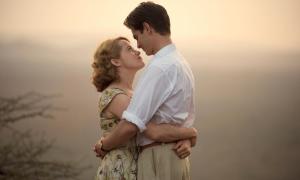 Like I said earlier, Breathe is… pleasant, and that’s about it. Serkis is clearly a technically-skilled filmmaker, some scenes are somewhat entertaining (like an aborted family holiday to Spain), and there are too many genuinely good intentions going about to make it something hateable. It’s just… empty, with little personality outside of aesthetics and nothing to say outside of some unintentionally humorous old-fashioned nationalism – there’s a late-film trip to Germany that should be Exhibit A in arguments that we as a nation still have not gotten over World War 2. It’s pleasing enough, but not worth actively seeking out and certainly not something that will be remembered once the fortnight is over. Between this and A United Kingdom, I feel like that’s probably the intention of the Opening Gala.
Like I said earlier, Breathe is… pleasant, and that’s about it. Serkis is clearly a technically-skilled filmmaker, some scenes are somewhat entertaining (like an aborted family holiday to Spain), and there are too many genuinely good intentions going about to make it something hateable. It’s just… empty, with little personality outside of aesthetics and nothing to say outside of some unintentionally humorous old-fashioned nationalism – there’s a late-film trip to Germany that should be Exhibit A in arguments that we as a nation still have not gotten over World War 2. It’s pleasing enough, but not worth actively seeking out and certainly not something that will be remembered once the fortnight is over. Between this and A United Kingdom, I feel like that’s probably the intention of the Opening Gala.
Tomorrow: the festival proper gets underway with Todd Haynes’ Wonderstruck, and twelve Cate Blanchett performances for the price of one in Manifesto.
Callum Petch will dive back in.
Advertisements Share this:

